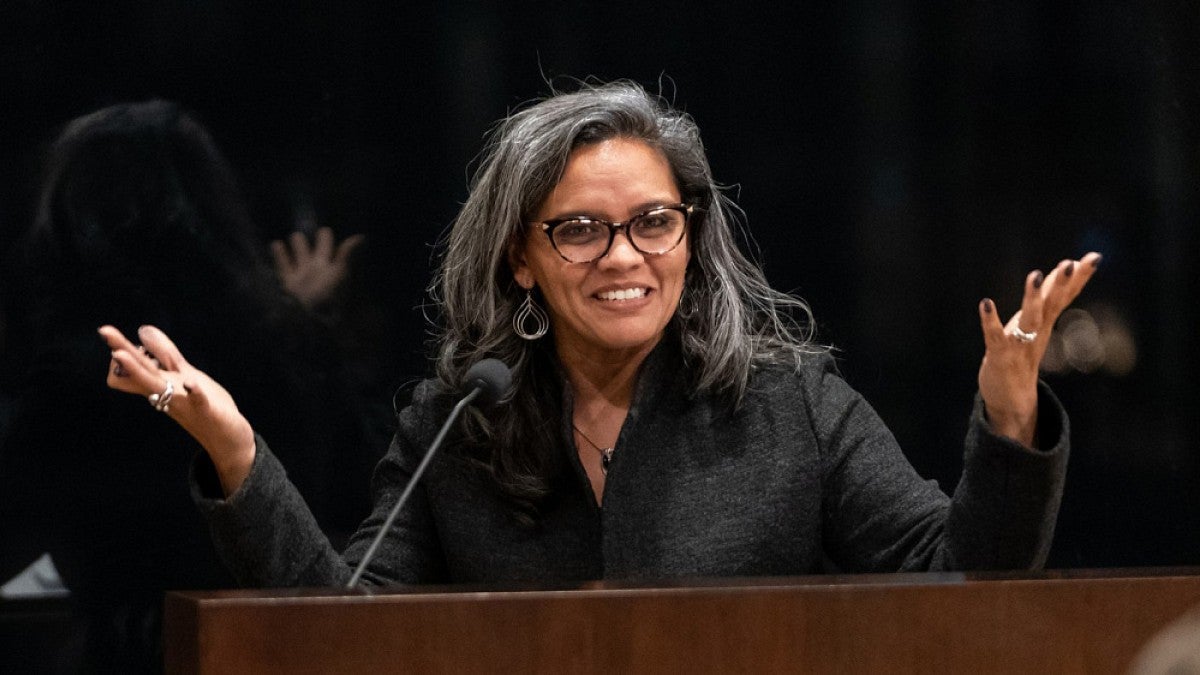This spring the University of Oregon welcomes Ford Foundation Vice President Sarita Gupta as Wayne Morse Chair.
Gupta, who is known for her policy advocacy, organizing, and building partnerships across the workers’ rights and care movements, is visiting as part of the Wayne Morse Center for Law and Politics’ 2021-23 theme, Making Work Work.
"The past couple of years have lifted the curtain on a harsh reality: The U.S. economy doesn't work for most workers, including the millions we now call ‘essential,’” said Ellen Herman, co-director of the Wayne Morse Center. “Sarita Gupta is an experienced labor organizer and brilliant strategist. Her visit will offer numerous opportunities to explore this fundamental problem and chart a future for labor that puts workers' well-being at the center of public policy and community life.”
As vice president of the Ford Foundation, Gupta oversees all U.S. programs. Previously, she served as the executive director of Jobs With Justice and co-director of Caring Across Generations.
Gupta will give a public lecture, “The Future We Need for Workers and Our Democracy,” at 5 p.m. Wednesday, March 30, in the Redwood Auditorium in the Erb Memorial Union. In the talk, which is co-sponsored by the Center for the Study of Women in Society, Gupta will discuss how working people can improve their wages and working conditions and the role that collective bargaining plays in the renewal of diverse communities and American democracy.
Gupta’s other public events include a panel discussion on Oregon workers, a UO union town hall, and a launch and discussion for her new book. Visit the Wayne Morse Center website for more details.
During her stay, Gupta will also make guest appearances in several UO classes as well as meet with student groups, union leaders, and local groups working on labor and workplace issues.
“Her visit should remind us that in any healthy democracy, people are always engaged in the work of self-government,” Herman said. “Where could that work be more significant than in the workplace itself?"
—By Abbie Stillie, Wayne Morse Center for Law and Politics


